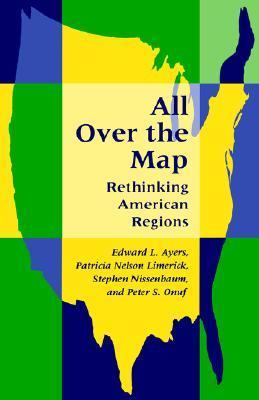Even as Americans keep moving "all over the map" in the late twentieth century, they cherish memories of the places they come from. But where do these places―these regions―come from? What makes them so real? In this groundbreaking book a distinguished group of historians explores the concept of region in America, traces changes the idea has undergone in our national experience, and examines its meaning for Americans today. Far from diminishing in importance, the authors conclude, regional differences continue to play a significant role in Americans' self-image. Regional identity, in fact, has always been fed by the very forces that many people think threaten its existence today: a central government, an aggressive economy, and connections with places beyond regional boundaries. Calling into question widely held notions about how Americans came to differ from one another and explaining why those differences continue to flourish, this iconoclastic study―by scholars with differing regional ties―will refresh and redirect the centuries-old discussion over Americans' conceptions of themselves.

